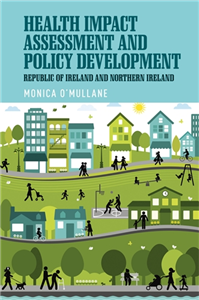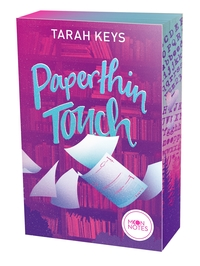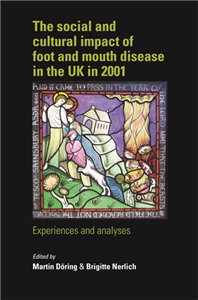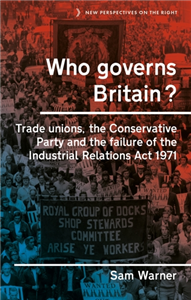Your Search Results
-
Aelurus Publishing / Impress Books
An independent publishing house with a small but passionate team, newly focused on the voices of the marginalised.
View Rights Portal
-
Promoted ContentPsychiatry
Intoduction to Affect Phobia Therapy
by Dr. Quin van Dam
A fear of one’s own emotions can lead people to develop what has been termed emotion- or affect phobia. To deal with this specific kind of phobia, Affect Phobia Therapy (APT) has proven to be useful. In APT, psychodynamic, cognitive behavioral, and experimental techniques are combined to help the patient to learn to accept and manage emotions again. Research shows that especially people suffering from anxiety or depression and people with avoidant or dependent personality disorders benefit from this method. This book offers a practical explanation of this evidence-based therapeutic method. The eight chapters focus on all different aspects of APT and the underlying theoretical concepts are illustrated with example patient-therapist dialogues. Target Group: psychologists, psychotherapists, students
-
Promoted ContentHumanities & Social SciencesJuly 2015
Health Impact Assessment and policy development
The Republic of Ireland and Northern Ireland
by Monica O'Mullane
It is an accepted convention that non-health sector policies and strategies impact on population health. An instrument and approach, Health Impact Assessment (HIA), seeks to assess the health impacts of projects, programmes and policies in a systematic way. The ultimate goal of HIA is to inform public policy processes of these impacts. This book provides for the first time an analysis of how and why HIAs informed local policy development in both jurisdictions on the island of Ireland. An original theoretical framework was used as the analytical lens for this exploration, drawing from the fields of political and social sciences, and public health. The HIA projects were conducted on traffic and transport, Traveller accommodation, urban redevelopment and air quality. This conceptually-grounded guide draws from the disciplines of the political and social sciences and public health, and will appeal to academics, students and practitioners in these fields as well as policy-makers and planners at local and national government levels. ;
-
 Trusted Partner
Humanities & Social SciencesMarch 2017
Trusted Partner
Humanities & Social SciencesMarch 2017Sunningdale, the Ulster Workers' Council strike and the struggle for democracy in Northern Ireland
by David McCann, Cillian McGrattan
-
 Trusted Partner
Humanities & Social SciencesJuly 2021
Trusted Partner
Humanities & Social SciencesJuly 2021Critical theory and feeling
The affective politics of the early Frankfurt School
by Simon Mussell
This book offers a unique and timely reading of the early Frankfurt School in response to the recent 'affective turn' within the arts and humanities. Resisting the overly rationalist tendencies of political philosophy, it argues that critical theory actively cultivates a powerful connection between thinking and feeling, and rediscovers a range of often neglected concepts that were of vital importance to the first generation of critical theorists, including melancholia, hope, (un)happiness, objects and mimesis. In doing so, it brings the dynamic work of Walter Benjamin, Theodor Adorno, Ernst Bloch and Siegfried Kracauer into conversation with more recent debates around politics and affect. An important intervention in the fields of affect studies and social and political thought, Critical theory and feeling shows that sensuous experience is at the heart of the Frankfurt School's affective politics.
-
 Trusted Partner
Humanities & Social SciencesJune 2022
Trusted Partner
Humanities & Social SciencesJune 2022Affective intimacies
by Marjo Kolehmainen, Kinneret Lahad, Annukka Lahti
This volume provides a novel platform to re-evaluate the notion of open-ended intimacies through the lens of affect theories. Contributors address the embodied, affective and psychic, sensorial and embodied aspects of their ongoing intimate entanglements across various timely phenomena. This fascinating collection asks how the study of affect enables us to rethink intimacies, what affect theories can do to the prevailing notion of intimacy and how do they renew and enrich theories of intimacy in a manner which also considers its normative and violent forms. Lively and thought-provoking, this collection contributes to timely topics across the social sciences, representing multiple disciplines from gender studies, sociology and cultural studies to anthropology and queer studies. By so doing, it advances the value of interdisciplinary perspectives and creative methodologies to understanding affective intimacies.
-
 Trusted Partner
September 2009
Trusted Partner
September 2009Global Impact
Der neue Weg zur globalen Verantwortung
by Radermacher, Franz Josef; Obermüller, Marianne; Spiegel, Peter
-
 Trusted Partner
Humanities & Social SciencesJuly 2015
Trusted Partner
Humanities & Social SciencesJuly 2015Health Impact Assessment and policy development
by Monica O'Mullane
-
 Trusted Partner
Literature & Literary StudiesApril 2020
Trusted Partner
Literature & Literary StudiesApril 2020Affective medievalism
by Thomas A. Prendergast, Stephanie Trigg, David Matthews, Anke Bernau
-
 Trusted Partner
Humanities & Social SciencesJuly 2022
Trusted Partner
Humanities & Social SciencesJuly 2022Affective intimacies
by Marjo Kolehmainen, Annukka Lahti, Kinneret Lahad
-
 Trusted Partner
Trusted Partner
-
 Trusted Partner
The ArtsAugust 2010
Trusted Partner
The ArtsAugust 2010Art, museums and touch
by Fiona Candlin, Amelia Jones, Marsha Meskimmon
Art, museums and touch examines conceptions and uses of touch within arts museums and art history. Candlin deftly weaves archival material and contemporary museology together with government policy and art practice to question the foundations of modern art history, museums as sites of visual learning, and the association of touch with female identity and sexuality. This remarkable study presents a challenging riposte to museology and art history that privileges visual experience. Candlin demonstrates that touch was, and still is, crucially important to museums and art history. At the same time she contests the recent characterisation of touch as an accessible and inclusive way of engaging with museum collections, and argues against prevalent ideas of touch as an unmediated and uncomplicated mode of learning. An original and wide-ranging enquiry, this book is essential reading for scholars and students of museum studies, art history, visual culture, disability, and for anyone interested in the cultural construction of the senses. ;
-
 Trusted Partner
February 2018
Trusted Partner
February 2018Institutions in Development Research: Buzzword or Real Impact?
Journal of Contextual Economics, Vol. 137 (2017), Issue 1–2.
by Herausgegeben von Silberberger, Magdalene; Herausgegeben von Zweynert, Joachim
-
 Trusted Partner
Politics & governmentFebruary 2017
Trusted Partner
Politics & governmentFebruary 2017Sunningdale, the Ulster Workers' Council strike and the struggle for democracy in Northern Ireland
by Edited by David McCann, Cillian McGrattan
The 'Sunningdale experiment' of 1973-4 witnessed the first attempt to establish peace in Northern Ireland through power-sharing. However, its provisions, particularly the cross-border 'Council of Ireland', proved to be a step too far. The experiment floundered amid ongoing paramilitary-led violence, finally collapsing in May 1974 as a result of the Ulster Workers' Council strike. Drawing on new scholarship from some of the top political historians working on the period, this book presents a series of reflections on how key protagonists struggled with notions of power-sharing and the 'Irish dimension', and how those struggles inhibited a deepening of democracy and the ending of violence for so long.
-
 Trusted Partner
November 2023
Trusted Partner
November 2023Literally Love 1. Paperthin Touch
by Tarah Keys, Moon Notes
Mit schönem Farbschnitt in der Erstauflage – Lieferung je nach Verfügbarkeit Buchstäblich Liebe: der unbekannte Autor und ich. Stell dir vor, du bist eine junge Lektorin und darfst das neue Buch des gefeierten Autors Bryn Spurling betreuen. So ergeht es Clio. Das ist zwar eine Riesenchance für sie, aber auch eine echte Herausforderung. Spurling gilt als extrem schwierig. Außerdem weiß niemand, wer hinter dem mutmaßlichen Pseudonym steckt. Doch was kompliziert angefangen hat, wird in den Kommentaren am Manuskriptrand professioneller, wird … flirty? Der zunehmend intensive Austausch bringt Clios Herz ganz schön aus dem Takt. Kann es sein, dass die Protagonistin immer mehr Ähnlichkeit mit ihr selbst bekommt? Schneller als gedacht, bekommt sie Gelegenheit, es herauszufinden – ihre Programmleitung ruft sie mit einer überraschenden Nachricht zu sich: Bryn will sie treffen! Paperthin Touch: Wer verbirgt sich hinter dem mysteriösen Starautor? Aufregende Young Adult Romance ab 16: Wer ist der unbekannte Love Interest? Spannende Insights in die Welt der Verlage – gemacht für Buchliebhaber*innen wie dich. Geniales Setting: England und das Literaturmilieu. Zwei deiner beliebtesten New Adult Tropes: One Bed und From Enemies to Lovers. Als Book Lover wirst du diesen spicy Roman-im-Roman verschlingen, der dir neben prickelnden Momenten auch einen spannenden Blick hinter die Kulissen der Verlagswelt gewährt!
-
 Trusted Partner
Humanities & Social SciencesJuly 2009
Trusted Partner
Humanities & Social SciencesJuly 2009The social and cultural impact of Foot and Mouth Disease in the UK in 2001
Experiences and analyses
by Martin Döring, Brigitte Nerlich
The 2001 Foot and Mouth Disease epidemic in the UK, during which millions of animals were culled over a nine-month period, had a devastating and long-lasting impact on individuals and communities. In 2002 the European Parliament noted that policymakers need to have a better understanding of the social and psychological impact of such events on adults and children, on farmers and non-farmers. Although many studies about FMD have been published since 2001, this is the first to offer a detailed examination of the various ways in which the outbreak affected the fabric of rural life and rural culture across classes and across generations. Drawing on the experiences of farmers, the media, artists, writers, children and churches, this collection provides a space for academic inquiry, political and poetic reflection and artistic expression. ;
-
 Trusted Partner
Humanities & Social SciencesJanuary 2013
Trusted Partner
Humanities & Social SciencesJanuary 2013The Black Death
by Rosemary Horrox
This series provides texts central to medieval studies courses and focuses upon the diverse cultural, social and political conditions that affected the functioning of all levels of medieval society. Translations are accompanied by introductory and explanatory material and each volume includes a comprehensive guide to the sources' interpretation, including discussion of critical linguistic problems and an assessment of recent research on the topics covered. From 1348 to 1350 Europe was devastated by an epidemic that left between a third and one half of the population dead. This source book traces, through contemporary writings, the calamitous impact of the Black Death in Europe, with a particular emphasis on its spread across England from 1348 to 1349. Rosemary Horrox surveys contemporary attempts to explain the plague, which was universally regarded as an expression of divine vengeance for the sins of humankind. Moralists all had their particular targets for criticism. However, this emphasis on divine chastisement did not preclude attempts to explain the plague in medical or scientific terms. Also, there was a widespread belief that human agencies had been involved, and such scapegoats as foreigners, the poor and Jews were all accused of poisoning wells. The final section of the book charts the social and psychological impact of the plague, and its effect on the late-medieval economy.
-
 Trusted Partner
2020
Trusted Partner
2020How Animals Hammer, Drill and Strike
Tool Use in the Animal Kingdom
by Peter-René Becker
From insects to fish as well as birds and primates: the use of tools is amazingly widespread in the animal kingdom. It’s a misnomer to presume that humans are distinguished by tool use and conscious capacity. So where is culture initiated? The biologist Peter-René Becker has evaluated numerous studies and cites plenty of evidence for the use of the hammer and anvil, lances, bait or sponges. Animals also use “tools as social implements”. Ultimately, the depth of man’s conscience singles him out from other animals.
-
 Trusted Partner
Humanities & Social SciencesNovember 2009
Trusted Partner
Humanities & Social SciencesNovember 2009'More work! Less pay!'
Rebellion and repression in Italy, 1972–77
by Phil Edwards
In the mid-1970s, a long wave of contentious radicalism swept through Italy. 'Proletarian youth', 'metropolitan Indians', 'the area of Autonomy': a shifting galaxy of groups and movements practised new forms of activism. Factories and universities were occupied; rent and utility payments were withheld; neo-Fascists and drug pushers were attacked on sight. The movements were at once creative and brutal, intransigent and playful. A particular target for mockery was the parliamentary Left, and above all the Italian Communist Party (PCI). An earlier wave of radical activism had culminated in the Hot Autumn of 1969; then, the PCI had managed to 'ride the tiger' of industrial militancy, emerging with its credibility enhanced. Now, however, the PCI was committed to compromise with the ruling Christian Democrats. The second cycle of contention thus ended in a hostile engagement: rather than adopt their policies, the PCI labelled the movements Fascists, criminals and hooligans. By the end of 1977 the movements were broken, while the PCI had moved sharply to the Right. The main beneficiaries were left-wing 'armed struggle' groups such as the Red Brigades. Building on Sidney Tarrow's 'cycle of contention' model and drawing on a wide range of Italian materials, Phil Edwards has told the story of a unique and fascinating group of political movements, and of their disastrous engagement with the mainstream Left. As well as shedding light on a neglected period of twentieth century history, this book offers lessons for understanding today's contentious movements ('No Global', 'Black Bloc') and today's 'armed struggle' groups. ;
-
 Trusted Partner
Humanities & Social SciencesApril 2023
Trusted Partner
Humanities & Social SciencesApril 2023Who governs Britain?
Trade unions, the Conservative Party and the failure of the Industrial Relations Act 1971
by Sam Warner
Providing fresh insights from the archival record, Who governs Britain? revisits the 1970-74 Conservative government to explain why the Party tried - and failed - to reform the system of industrial relations. Designed to tackle Britain's strike problem and perceived disorder in collective bargaining, the Industrial Relations Act 1971 established a formal legal framework to counteract trade union power. As the state attempted to disengage from and 'depoliticise' collective bargaining practices, trade union leaders and employers were instructed to discipline industry. In just three-and-a-half years, the Act contributed to a crisis of the British state as industrial unrest engulfed industry and risked undermining the rule of law. Warner explores the power dynamics, strategic errors and industrial battles that destroyed this attempt to tame trade unions and ultimately brought down a government, and that shape Conservative attitudes towards trade unions to this day.
-
 Trusted Partner
MedicineAugust 2016
Trusted Partner
MedicineAugust 2016Evidence-based Nursing and Caring
by Johann Behrens, Gero Langer
Evidence-based-nursing and caring, a method that relies on scientifically verifiable data from an outside perspective (“external evidence”) as well as the individual needs of those cared for as well as the caretakers (“internal evidence”). This title offers a detailed insight into external and internal evidence in nursing care and shows in a 6-step-approach how to • make shared decision • analyse and describe problems • find literature and relevant studies • critically evaluate nursing studies and their quality • change nursing practice and • evaluate nursing care. Target Group: Nursing Students, Nurse Educators.






























